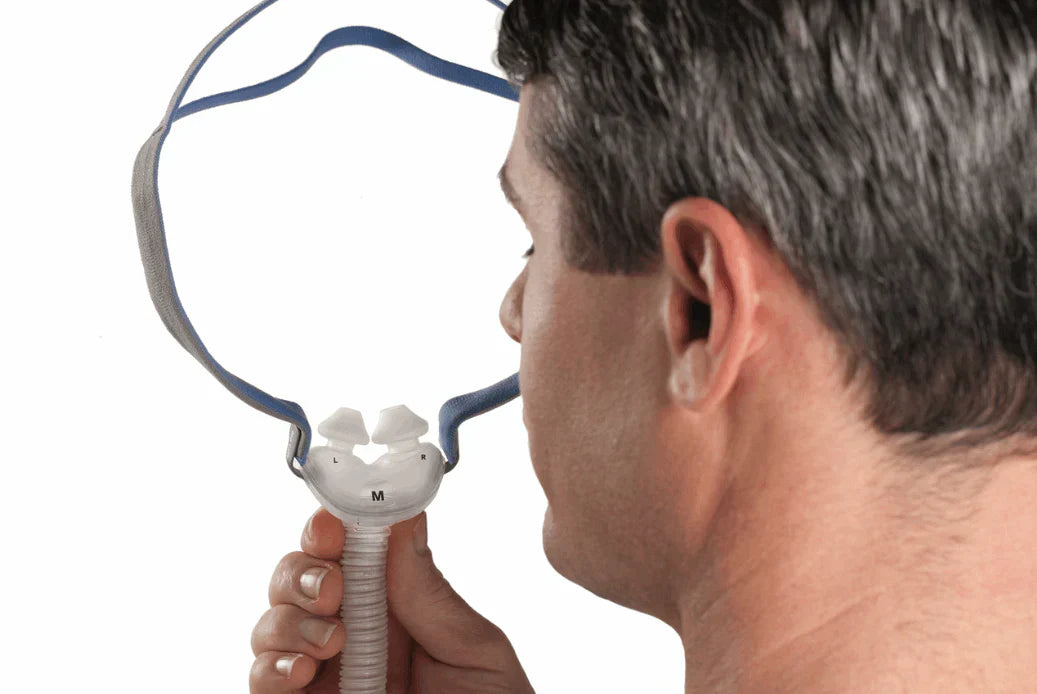Au Canada, les gens passent beaucoup de temps à l'intérieur pendant les longues nuits d'hiver ; il est donc particulièrement important de bien dormir. Pour les patients souffrant d'apnée du sommeil, la thérapie CPAP offre un espoir : une bonne nuit de sommeil et l'espoir d'une vie meilleure. Cette thérapie utilise principalement des masques faciaux, appelés CPAP, qui jouent un rôle essentiel pour fournir le débit d'air nécessaire afin de prévenir le sifflement des voies respiratoires pendant le sommeil.
Choisir un masque adapté peut s'avérer une tâche ardue, surtout avec la multitude de choix offerts au Canada. Cependant, connaître vos préoccupations et vos souhaits particuliers peut vous aider, ce qui améliorera l'observance du traitement et le confort du patient.
Découvrir les différents types de masques CPAP au Canada
Il existe différents types de masques CPAP au Canada , principalement en fonction de leur forme, de leur taille et du confort souhaité par l'utilisateur pendant son sommeil. Il existe trois principaux types de masques : les masques nasaux, les masques à coussin narinaire et les masques faciaux, chacun ayant ses avantages.
Les masques nasaux sont un autre type d'interface très apprécié, car ils offrent confort et efficacité tout en reprenant la plupart des fonctionnalités des masques faciaux. Ils obturent les narines, offrant un ajustement parfait pour ceux qui respirent par le nez pendant leur sommeil. Très polyvalents, ils offrent une grande flexibilité de réglage de la pression, s'adaptant ainsi à différentes postures de sommeil.
Les coussinets nasaux sont les plus petits modèles de masques ; les coussinets se placent directement sur les narines. Ils conviennent donc aux personnes qui se sentent à l'étroit dans les masques plus grands ou qui ont une barbe, car le contact avec le visage est limité. Ils sont généralement légers et leur visibilité est généralement réduite une fois placés au lit, offrant ainsi un sommeil plus confortable.
Parce qu'ils enveloppent à la fois le nez et la bouche, les masques respiratoires intégraux sont idéaux pour les personnes qui respirent par la bouche ou qui souffrent de congestion nasale. Cependant, ils couvrent davantage le visage et sont dotés de coussinets souples et de sangles flexibles pour un confort accru. Ils sont particulièrement recommandés pour les applications à haute pression et les personnes souffrant de congestion nasale.
L'importance de l'ajustement et du confort
Au Canada, le choix d'un masque CPAP dépend de son ajustement. Un masque bien ajusté améliore non seulement le traitement, mais réduit aussi considérablement les risques d'inconfort et de fuites. Les fournisseurs d'appareils CPAP Resmed au Canada offrent des services d'ajustement qui aident les patients à trouver la taille et le style appropriés pour une utilisation à long terme.
Un autre point crucial est le confort de la personne qui recevra ou passera plusieurs jours dans ce lieu. Ces masques étant utilisés la nuit pendant plusieurs heures, leur tolérance influence leur durée d'utilisation. De conception contemporaine, les masques portés par les patients utilisant cet équipement sont fabriqués à partir de matériaux souples. Les sangles de tête sont réglables et le débit d'air est très silencieux.
Accès aux masques CPAP au Canada
Vivre au Canada présente l'avantage de permettre la commande ou l'achat de nombreux types de masques CPAP sur les sites officiels en ligne, dans divers centres de santé et dans des boutiques spécialisées. La plupart des fournisseurs offrent la possibilité d'essayer les masques à domicile et de tester différents modèles pendant votre sommeil. Cette période d'essai peut s'avérer très utile pour choisir le masque le mieux adapté à vos besoins.
De plus, les régimes d'assurance maladie canadiens peuvent couvrir une partie des frais liés à l'utilisation d'appareils de thérapie CPAP, y compris les masques et accessoires. Il est toujours judicieux de consulter votre assureur pour savoir s'il peut vous aider, car cela constituera un atout majeur lors de la recherche du masque CPAP idéal.
Maintenir votre masque CPAP en état optimal
Même en portant un masque adapté, il est crucial de bien l'entretenir, car son efficacité dépend de son entretien régulier. Le nettoyage protège le masque des huiles, des bactéries et d'autres contaminants spécifiques qui peuvent entraîner la formation de couches supplémentaires sur la face extérieure, susceptibles de contaminer le visage lors de l'utilisation. Un lavage quotidien au savon doux et à l'eau tiède, suivi d'un lavage intensif hebdomadaire, garantit un masque en parfait état.
L'entretien du masque implique également le remplacement de certains de ses composants, comme les coussinets et le harnais, au moins toutes les quelques semaines d'utilisation. La plupart des fabricants recommandent de changer le masque ou ses composants tous les trois à six mois, selon la fréquence et le traitement.
Conclusion
Les Canadiens qui traitent l'apnée du sommeil comprennent que la recherche du masque CPAP idéal est essentielle pour retrouver des habitudes de sommeil plus saines. Lorsqu'il n'existe que des options d'achat de masques, il est important de connaître les différents types de masques disponibles ; il est donc essentiel de choisir en fonction du confort et de l'ajustement. Des options de soins de santé et d'assurance efficaces et conviviales ajoutent au plaisir de chercher et d'entretenir le bon masque CPAP. Consacrer du temps et des efforts au choix du bon masque CPAP contribuera grandement à aider les Canadiens à bénéficier d'une qualité de vie nettement améliorée et d'un sommeil réparateur et intermittent.

